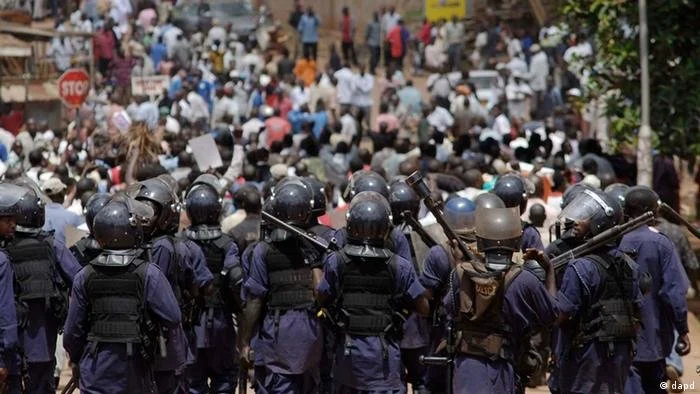As a Ugandan Parliamentarian, I am deeply concerned about the rising tide of intimidation, arrests, detention, torture, and killings by the government forces of my country. I represent Kasese, a lush mountainous district in the western part of the country, bordering the Democratic Republic of Congo.
During elections in 2016, Kasese voted overwhelmingly for the opposition. Months later, government forces led an assault on the palace of one of our traditional leaders, killing over 160 unarmed people, including scores of women and thirteen children under the age of twelve. The reason? The victims were supposedly ‘rebels’ who were threatening our country’s security.
As Uganda was preparing for the January 2021 elections, these same security forces then unleashed terror in the capital Kampala, killing scores of innocent people in the streets and in broad daylight. Government officials claimed that most of the victims were ‘rioters’ in league with the opposition; but independent investigations indicate that many, if not all, were peaceful citizens simply minding their own business.
Two of my parliamentary colleagues, Hon. Ssegirinya Muhammand and Hon. Allan Ssewanyana, and perhaps thousands of others, have likewise been detained and tortured. Some of them now face trumped-up charges; others are never charged at all. Some have ‘disappeared.’ And many of our most talented intellectuals, including dissident writers Stella Nyanzi and Kakwenza Rukirabashaija, are living in exile.
No government officials have been punished for these crimes. Some have even been promoted.
Even as the Museveni regime’s cruelty becomes more blatant, it is harder to monitor and challenge. At least 54 domestic civil society organizations – mostly those working on human rights, good governance, and democracy – have been forced to close or suspend their operations. The shuttered organizations include the well-known human rights groups Chapter 4 Uganda and the Citizens' Coalition for Electoral Democracy. Countless other groups have been forced to operate in secret for fear over their safety.
For a long time, I have wondered why the Ugandan state behaves this way. I believe that these actions are intended to stigmatize anyone who holds a different view from that of the long-ruling regime, and instill fear and apathy among the citizenry. No wonder, then, that we now have a section of people in Ugandan society who believe that it is “better to live a coward than die a hero.”
As Africans, we are often told to solve our challenges ourselves — the “Ugandan way” — before seeking outside help. But how can we reasonably do this when we are cowering in the sights of the regime’s weapons, many of them purchased with misused funds from the very same donors who then tell us to solve our own problems?
In pursuing its critics, the regime of Yoweri Museveni – now in his 36th year in power – always finds an excuse to give its crimes a facade of legitimacy, labeling its victims ‘rioters,’ ‘rebels,’ ‘tribalists,’ ‘sectarians,’ and so on. For years, our generous foreign aid donors bought this line of argument, even though these labels would in fact apply to agents of the regime themselves. It is time for them to wake up. They, and the rest of the international community are rightly focused on the calamity underway in Ukraine, but they also need to spare a thought for us in Uganda.
We are longing for a peaceful transition of power, because our lives matter too.
Hon. Winnie Kiiza is a human rights defender, a teacher, and the former leader of Uganda’s political opposition (2016-2018), the first woman in Ugandan history to achieve this status.
DISCLAIMER: The views expressed in this publication do not necessarily reflect the views of Vanguard Africa, the Vanguard Africa Foundation, or its staff.

